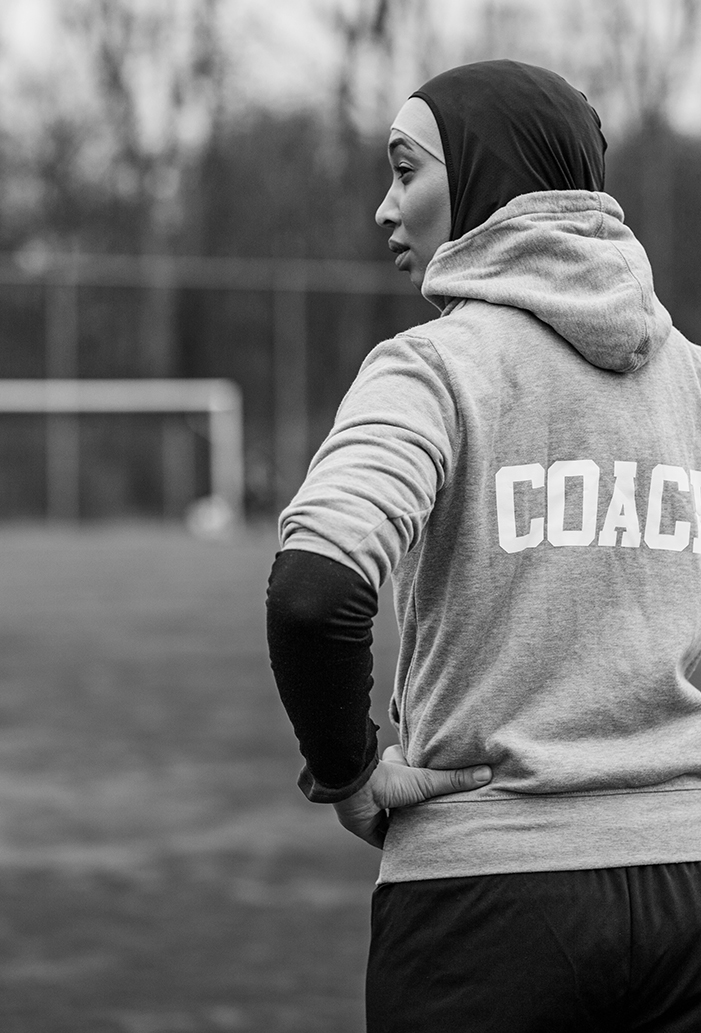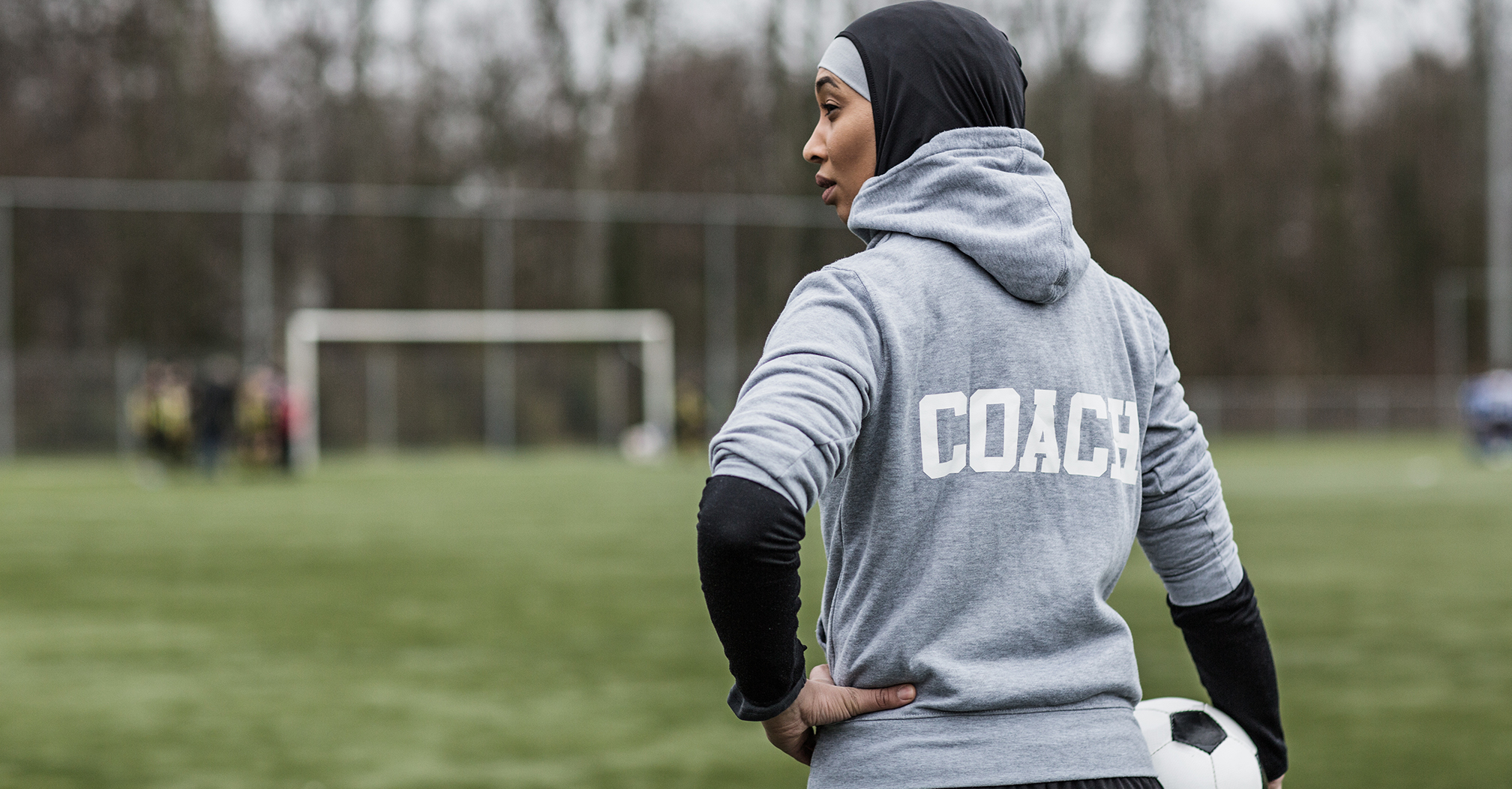Diversity and inclusion in sport
Inclusion, reflected in the Olympic and Paralympic Charters, and the International Convention for Human Rights, refers to the ability of everyone, regardless of gender, race, age, culture, sexual orientation or ability, to participate in sporting activities.
Sport reflects the full diversity of humanity and builds more connected communities of people with stronger friendships, enhanced self-esteem, greater mental resilience, and higher levels of physical health and sporting activity. Inclusion is embodied through proactive behaviours that make people from all backgrounds and abilities feel welcomed, valued and respected.
A Sports Diplomacy approach to diversity and inclusion embodies low-cost, low-risk and high profile partners, projects and people from all over the world. It emphasises no boundaries to competing in sport, builds resilient multicultural, multi-gendered, and multi-ability international societies, and uses the power of sport to normalise diversity. More inclusive communities built via sport, in turn, generate economic, educational, diplomatic and social benefits.
Diversity and inclusion: Distinct but vital in sport and society
While diversity and inclusion are often used as interchangeable terms, they are in fact distinct.
Diversity refers to the rich and varied characteristics among people in any given community. Such characteristics can include gender, age, religion, culture, nationality and ethnicity, sexual orientation, or disability. Inclusion, meanwhile, refers to taking action to remove barriers to participation that may exist for people, regardless of their personal characteristics. These barriers can include a person’s level of income, language, accessibility, or culture.
Diversity and inclusion is imperative in modern sport. However, both require proactive behaviour based on strategic planning, participation control, and integral leadership across all stakeholders. That’s where the Sports Diplomacy Alliance (the Alliance) comes in.
What groups can benefit from greater diversity and inclusion in sport?
Sportswomen and non-gendered athletes
Sportswomen and non-gendered athletes are well-placed to take a lead in the mission for greater diversity and inclusion. But how can athletes and sporting bodies unlock this power and bring people together? What best international practises exist, and what can be learned from them? How, working together, do we create sustainable, diverse and inclusive teams on a global scale? The Alliance works with women and non-gendered people, seeks to build greater inclusion in sport, and educates old and new stakeholders on gender diversity beyond the field.
People with disabilities
Accessibility to sport is a human right, yet there is so much room for sport and society to improve. Millions of people live with a disability. How might sporting organisations improve accessibility across their multi-layered and complex ecosystems? Many athletes, and the organisations behind them, are role models in promoting inclusivity but lack the strategic expertise to develop a plan to move the dial. The Alliance wants to change the game and team up with progressive partners to identify and remove barriers.
Older people
Sport is a powerful vehicle for health longevity by ensuring the inclusion of ageing people. With isolation and mobility a barrier for the ageing community, sport can promote healthier minds, bodies and souls for our older sports friends. Each has different needs, so how might ageing people and communities be better engaged, listened to and consulted? The Alliance works in conjunction with sporting bodies, the health sector, corporate sponsors, and government organisations interested in changing the game for our older, wiser sporting fans.
People from different cultures
Differences between cultures can be bridged and stronger communities built through sport. Regardless of race, gender, language, history, or religion, sport is a universal language that transcends the barriers others erect. People from foreign backgrounds, particularly refugees and other disenfranchised groups, can benefit from the empowerment and inclusion possible through sport. The Alliance believes that strength comes from diversity. We create and manage winning teams,projects and partnerships. Each ensures that socio-economic, religious, and cultural barriers are addressed as part of strategies aimed building richer, stronger communities.
The LGBTQ+ community
Traditionally sport has been misappropriated to support limiting social stereotypes around sexual orientation. However, this can be reversed to make sport a platform for the greater inclusion of all participants. What role do the players have in working with those in power to drive real change? The Alliance has the expertise and contact networks to develop strategies promoting an acceptance of diversity and ensure everyone is equal on the field of play.

The benefits of increasing diversity and inclusion in sport
- Addresses a wide range of issues arising within increasingly diverse communities around the globe.
- Safeguards participants and communities while ensuring fairness and equality.
- Cultivates an attractive image for a city, region, or country as being open and progressive.
- A better image can, in turn, generate sports tourism and increase the likelihood of hosting a major sporting event
- Link international partners in education,government and business to grassroots projects that create new socio-economic opportunities.
- Increases the profile of diversity and inclusion in a given sport and lead to a larger pool of administrative, athletic, and volunteering talent that identifies with and reflects the community it serves.
- Increases representation in society for formerly marginalised groups. Sport and society reflect each other, so a wider range of sportspeople mean a more diverse and inclusive society.
How the Sports Diplomacy Alliance can help
Opening sport up to everyone translates to happier, healthier, and more peaceful communities. However, strategic, diplomatic thinking is required to lower barriers to diversity and inclusion.
The Alliance works with sporting bodies, governments, and non-profit organisations to develop comprehensive programs that advocate for diversity and inclusion all over the world. Our leadership team has an ingrained belief in the power of sport to unite people. Our mission is to ensure everyone can enjoy the benefits of a world where the unique power of sport forges lasting, diverse and inclusive connections.
Our team can help you by:
- Educating stakeholders on the benefits of promoting diversity and inclusion in sport.
- Offering guidance on implementing sport projects designed to include more people.
- Connecting project leaders with social advocates, athletes, and corporate allies.
- Providing resources for projects aimed at increasing diversity and inclusion in sport.
- Evaluating and stress-testing existing sport community diversity and inclusion strategies.
Our team of academics, entrepreneurs and sportspeople can help you discuss your diversity and inclusion needs further.
Projects, publications, and preferred partners
The Alliance team works with a focus on increasing diversity and inclusion through Sports Diplomacy around the globe on every major project we are involved in.

